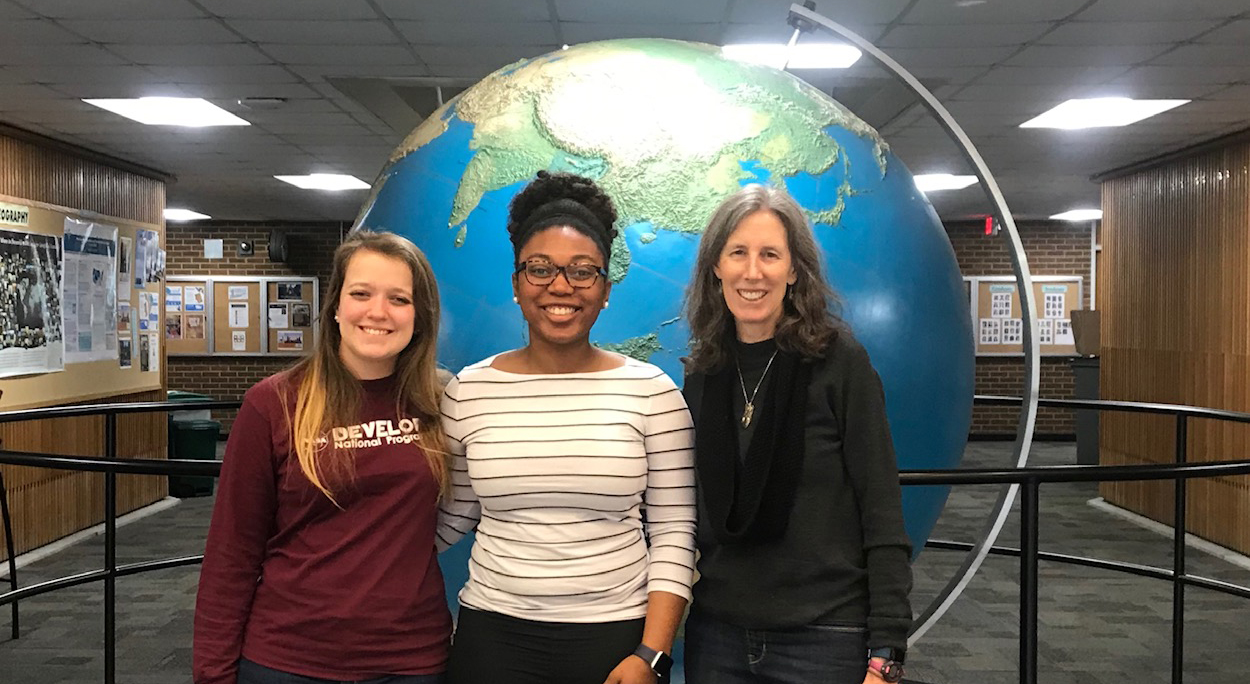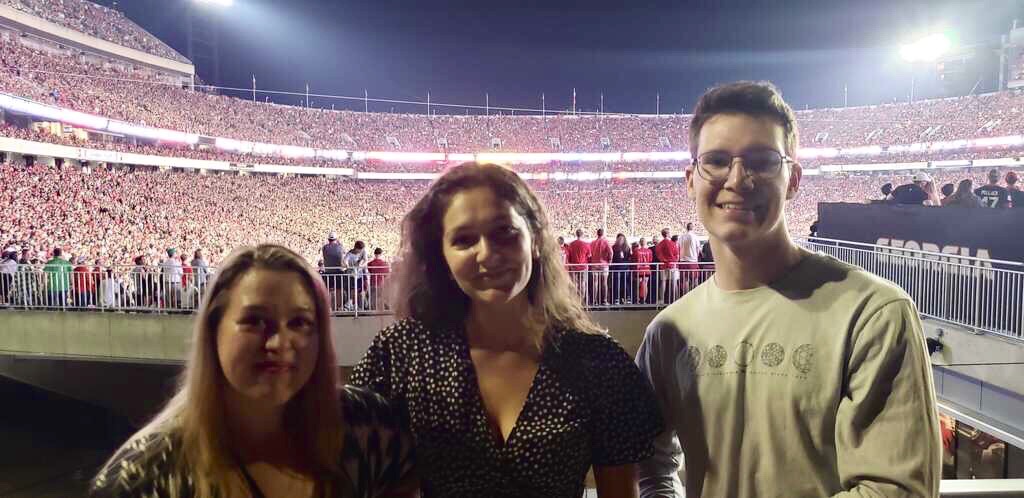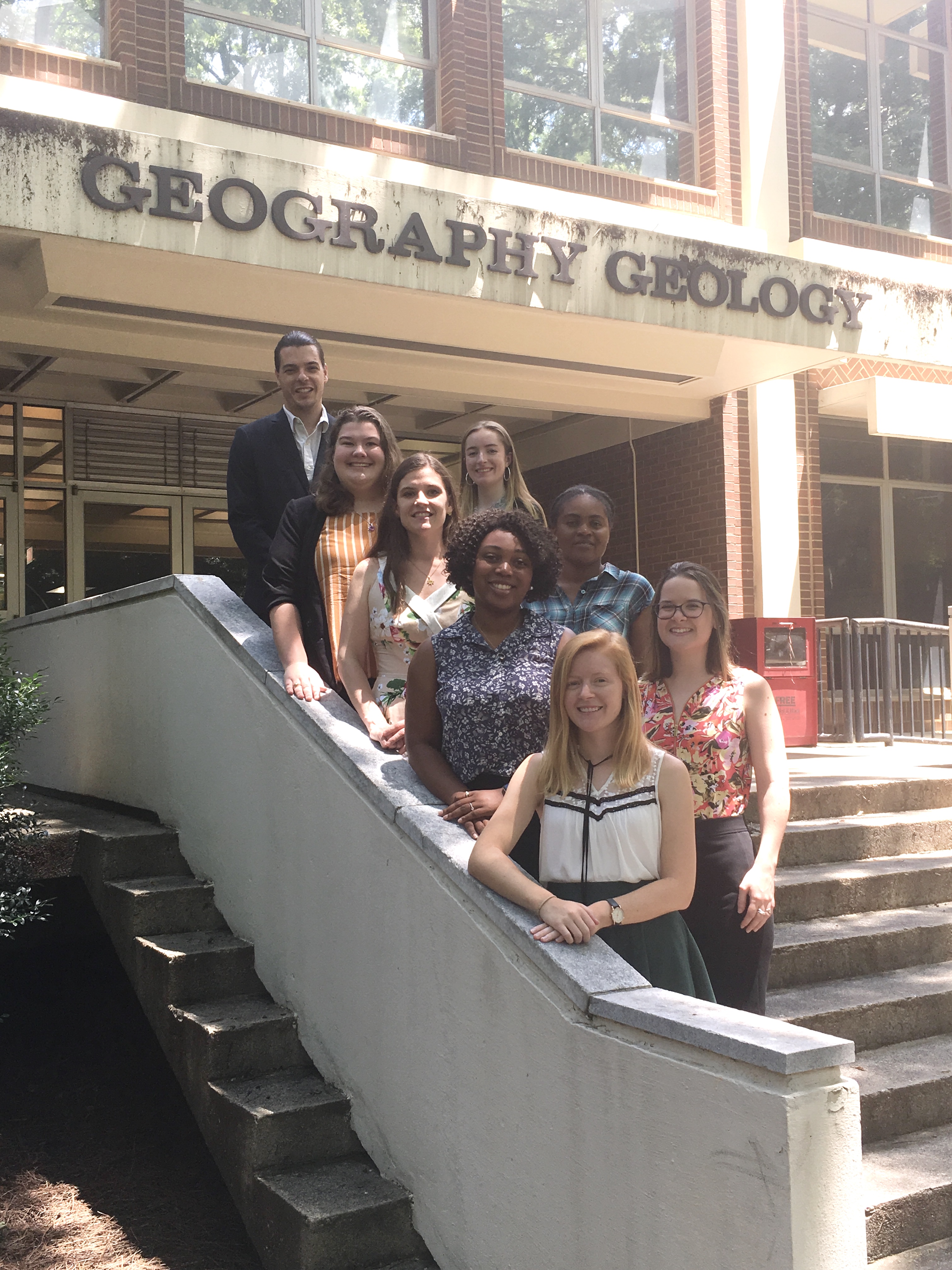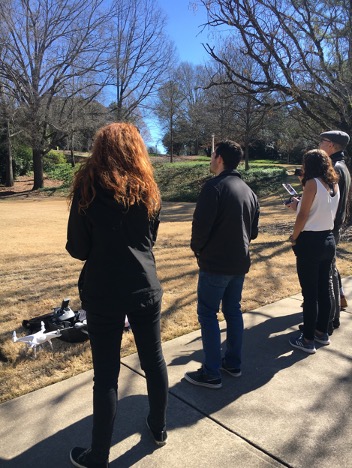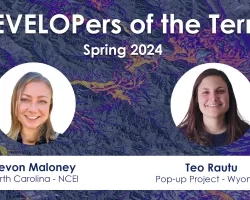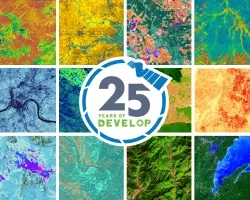Athens, GA, also known as “The Classic City,” is located about 70 miles northeast of Downtown Atlanta. This small metropolis is home to Jittery Joe’s Coffee, the Georgia Theatre, and the University of Georgia (UGA). In 1985, UGA opened the Laboratory for Remote Sensing and Mapping Science, a home for geospatial researchers dedicated to interdisciplinary research, education, and public service. Now, the lab is called the Center for Geospatial Research (CGR), and while the name may have changed, the dedication of the staff has not waivered. The CGR currently hosts student researchers ranging from middle schoolers to post-doctoral candidates while they complete projects using remote sensing, photogrammetry, GIS, geo-visualization, and field surveys.
This strong history of interdisciplinary research and network of resources inevitably made the CGR a great contender for a DEVELOP location, and in the summer of 2013, the Georgia node kicked off its first NASA DEVELOP term. Since then, GA DEVELOPers have enjoyed multiple 10 week terms of immersing themselves in DEVELOP projects, partner relationships, the culture of living in “The Classic City,” and being a UGA Bulldog!
As a part of the Bulldog family, recovery and sustainability of habitats for our fellow members of the animal kingdom are especially important to us, with many of our projects supporting the conservation of animal species populations and habitats. With the goal of providing the partner a product to help their efforts in mitigating the negative effects of solar development on the environment, the summer 2020 Georgia Energy III project created an Environmental Sensitivity Mapping Tool. With this tool, solar developers, conservationists, and community stakeholders can visualize the conflict between the habitats of the environmentally critical gopher tortoise and American black bear and sites suitable for utility-scale solar farm developments.
Past DEVELOP GA teams also worked on modeling ecological corridors for jaguar populations that have been isolated due to deforestation and agricultural development in Costa Rica. During the fall 2020 term, the DEVELOP GA team will use NASA Earth observations to map the effects of drought and crop deficits on elephant movement and habitat conditions in southern Africa.
Earth is not just a home for humans, but animals as well. The NASA DEVELOP GA location is excited to continue our efforts in helping the animal kingdom through our core values of collaboration, discovery, passion, and service, hoping to have a lasting impact on the world around us.

